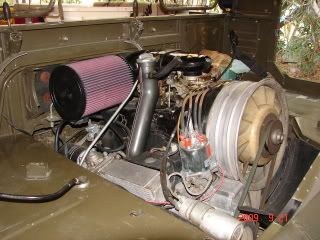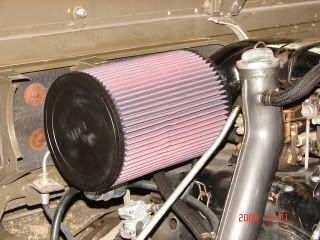pinzinator wrote: and I've never heard a K&N called crap before, at least not by anyone who has actually used one.
You must not drive a big diesel, or follow the forums where they are discussed.
Airflow is a big issue in diesels as you uprate them. So many try to get HP by replacing factory filters with stuff like the K&N. But many cummins types also do oil analysis, and they absolutely see increased silica (meaning contaminants) and metal in the oil with the K&N's.
Filter companies like fleetguard publish SAE tests for their filters, and all filters have to meet certain specs (J276C). All the time, from brand new to fully clogged. These tests measure filter efficiency in terms of how much of the multisized test dust is passed vs retain. And also measure restriction.
Try to find SAE specs for a particular K&N filter. For years there was no reference to such a thing. Now the website says they test them, but that each filter would be different so they don't bother to post individual filters.
Never do they publish the results. They often do state that they filter within 99% of the factory filter. 1% does not sound like much, but as air filters are measured that's an unacceptable figure. Depending on the filter, that can be 15-30 times more small dust particles allowed to pass. And enough that measurable engine wear can be detected with oil analysis.
Put another way: A good quality paper or foam air filter will be 99.5 - 99.9% efficient. IE: Stops all but .1 to .5% of particles. So what happens to K&N's "we are 99% as good"? 99.5 * 99%= 98.5% efficiency. Pretty crappy!
So some folks did some independent tests. And yes, a K&N well loaded with grit did filter OK, not great, but OK. But it let the relative equivalent of boulders through when freshly cleaned/oiled and did worse on small particles. IE: It did not filter at an appropriate level.
Worse, you are putting your engine at risk trying to solve a non-existent problem. The pinz filter has plenty of airflow even dirty. Putting a less restrictive filter will not increase HP, as it's not the constraint. The valves, head, and intake runners are the constraint. You can't change that.
So back to diesels. I have an '03 High output cummins ram. All types of filter claims out there. So turbodiesel register did side by side dyno's of all the magic filters compared to the factory. Only one even showed a bit of improvement, and it was only 1-2% when you reached 500HP. All showed significantly increased noise. And all did not filter as well as the factory. So for $50-200 you can wear your engine out faster. On my particular model, the air filter is simply not the constraint. (nor is the exhaust for anything under 500HP, for that matter)
But don't listen to me, here's some links with the results of testing K&N's:
http://www.nicoclub.com/articles.php?id=180100
And Bob'stheoilguy also did some less scientific testing:
http://www.bobistheoilguy.com/airfilter/airtest3.htm
There is one situation that I would consider an oiled cotton filter: If I was a big dollar baja racer I might would consider one as engine wear is just not relevant. And dust is clearly a problem. But then again, many race engines don't even use air filters, just simple screens, as the engine won't wear out in the 500 miles it's used. The same reason many use plain oil. (Indy cars for years used plain jane oil, no synthetics, etc)
OK, so I won't call them crap. What I'll say is that they won't make your pinz work any better and will shorten it's life. If the "whosh" sound is worth that, then you have that option!

Sorry for the long post, but there is so much misinformation out there that it's worth looking at some hard data.
Have fun, and happy "whoooshing"!
Alan








